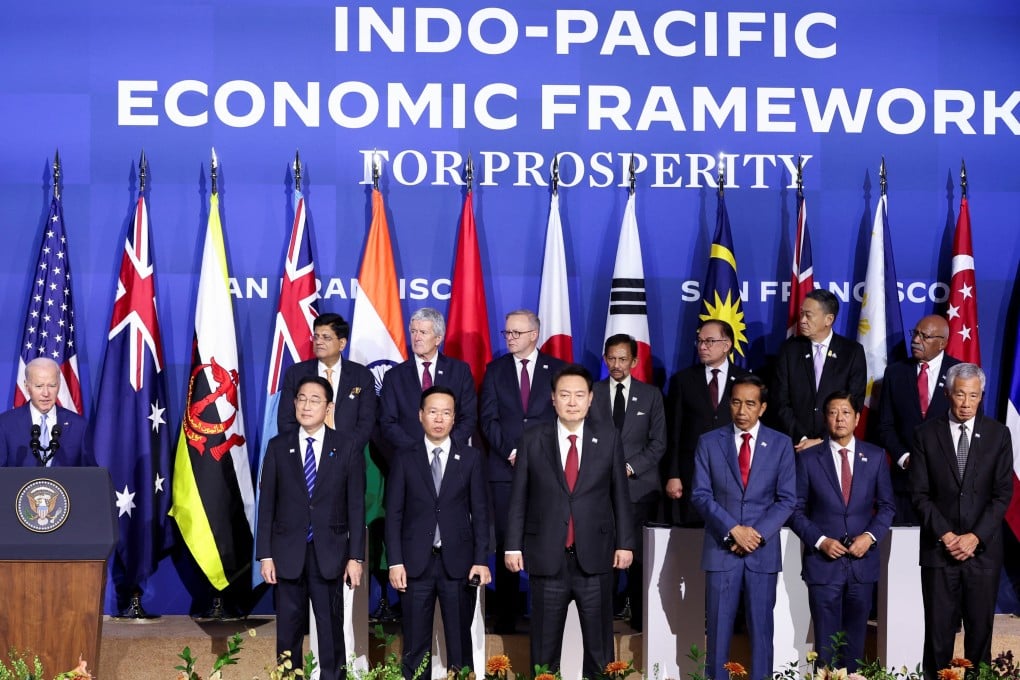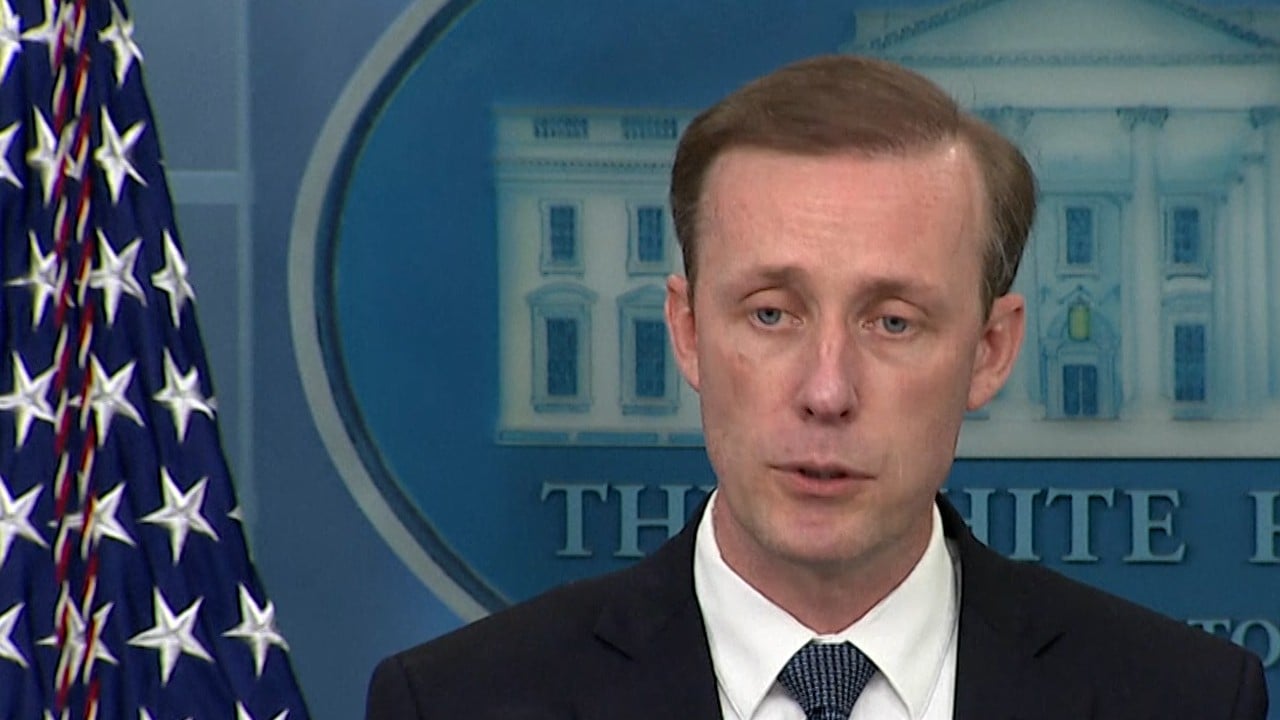Nations in Biden’s Indo-Pacific ‘framework’ are losing interest, trade group official warns
- US partners in Indo-Pacific Economic Framework are impatient for implementation, Marc Mealy of US-Asean Business Council says
- The initiative, launched by US President Joe Biden in 2022, seeks joint regional efforts to mitigate the impact of China’s dominance in key supply chains

A continuing lack of solid conclusions and implementations from US President Joe Biden’s Indo-Pacific Economic Framework is leading to a loss of interest from non-US members, a business group executive warned on Wednesday.
“IPEF is going to have to produce concrete, tangible and commercially relevant results in order to really maintain the bandwidth and interest of our partners in the IPEF context, particularly in Southeast Asia this year,” Marc Mealy, senior vice-president of policy at the US-Asean Business Council, said during an online panel organised by the Centre for Strategic and international Studies.
He added, however, that a degree of optimism remained that IPEF could yet produce some tangible outcomes, since Southeast Asian nations “definitely welcome” the initiative.
“We thought of it as an opportunity, but even within our membership, clearly [there’s] a wide range of concerns from the outset that it’s not enough,” Mealy said.
The US-led multilateral economic initiative, launched by Biden in 2022, seeks joint efforts from regional allies and partners to mitigate the impact of China’s dominance in key supply chains such as critical minerals.
Its founding members comprise 14 Asia-Pacific states that account for 40 per cent of the world’s gross domestic product, including seven of the 10 countries in the Association of Southeast Asian Nations.
